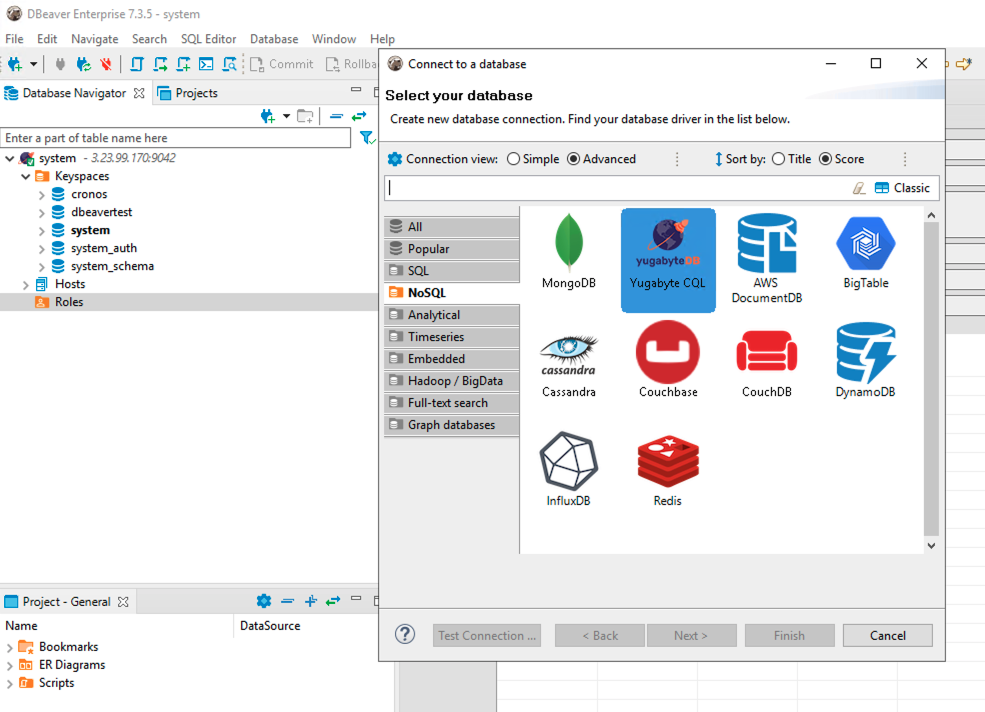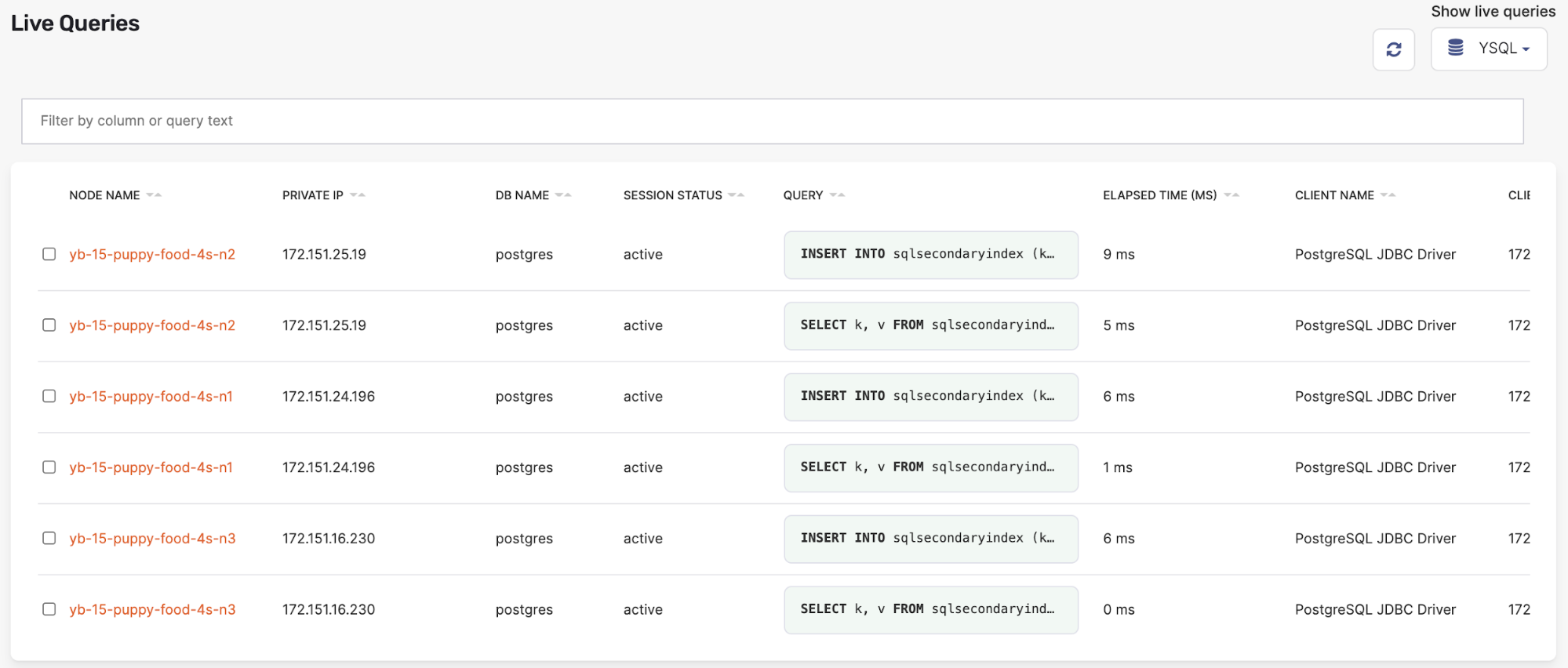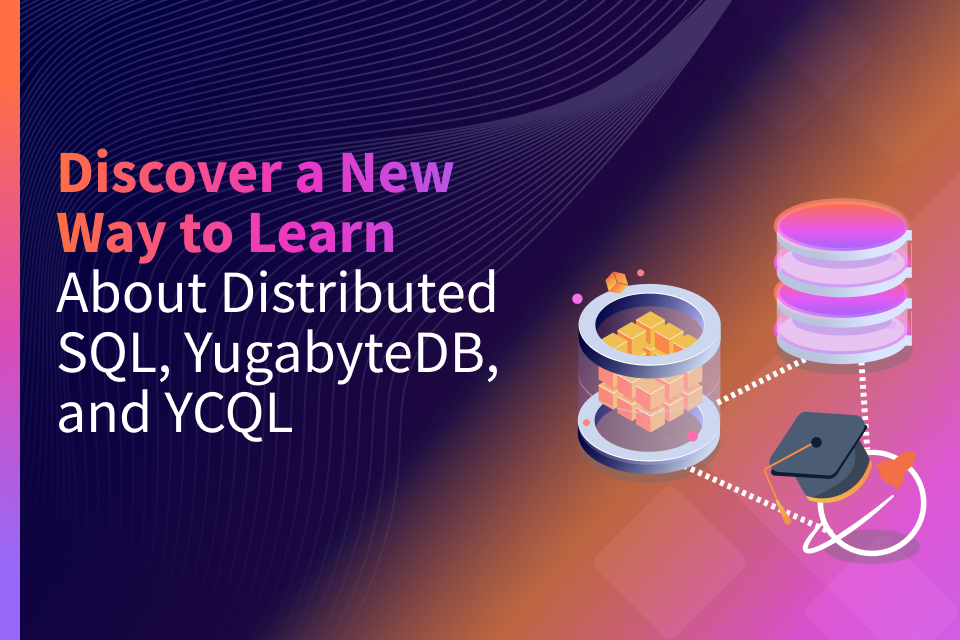Announcing YugabyteDB 2.4
Run mission-critical applications at scale with enterprise-grade SLAs and security
Our mission at Yugabyte is to build the default distributed SQL database for cloud native applications in a multi-cloud world. We have been accelerating on this mission by bringing new features, growing our user base, and making our software as robust as possible. Today we are excited to announce the general availability of YugabyteDB 2.4 which includes major enhancements and provides enterprise-grade stability allowing you to deploy YugabyteDB in production environments. Significant improvements have been made to multi-region deployments, performance, and security features offered by the database. In addition, high availability, horizontal scalability, and ease of managing the database have been greatly enhanced.
The following is a summary of the new generally available features in YugabyteDB 2.4.
Scalability and availability for more workloads
This release is packed with an exciting set of features and enhancements in YugabyteDB that will enable users to deploy cloud native applications more seamlessly with scalability and high availability.
Support for database CURSOR
The Yugabyte SQL (YSQL) API now supports the SQL CURSOR feature, which is a pointer with read-only access to the results of a SELECT statement. You can use this cursor to manage your results and process individual records as you traverse over the rows of a result set. The cursor allows applications to be more efficient by enabling retrieval of different rows from a result set at different times without the need to execute the query multiple times with various clauses such as OFFSET and LIMIT.
Build scalable, resilient Hasura GraphQL apps
YugabyteDB natively supports Hasura GraphQL Engine with the scalable YSQL API, and can now ensure Hasura GraphQL applications have resilience to failures. Additionally, GraphQL queries can be scaled linearly using YugabyteDB’s scalable architecture without any downtime. Here are the results obtained by running benchmarks on a Kubernetes cluster where GraphQL subscriptions are scaled from 25K subscriptions to 1 million subscriptions linearly without any downtime:
| No. of Subscriptions | YugabyteDB: Number of vCPUs | Hasura: Number of vCPUs |
|---|---|---|
| 25K | 8 | 4 |
| 50K | 16 | 12 |
| 100K | 32 | 20 |
| 1M | 320 | 200 |
Note: All the components of this benchmark were containerized and deployed on a Kubernetes cluster.
For more information, check out this blog post: Building Resilient GraphQL Apps and Scaling Them to 1M Subscriptions.
DBeaver support for YSQL and YCQL
Our DBeaver support has been enhanced to now support the Yugabyte Cloud Query Language (YCQL) API on top of the already supported YSQL API. DBeaver is a multi-platform database management tool that supports a variety of popular databases including MySQL, Postgres, and even YugabyteDB! For more information, check out the blog post: Getting Started with DBeaver on a Distributed SQL Database.

Yugabyte YCQL API in DBeaver Enterprise
Support for Apache Spark 3
Apache Spark 3 Integration was performed via certification of the Yugabyte Spark Connector with Apache Spark 3. Apache Spark has become the de-facto standard framework for distributed scale-out data processing. This release enables you to use the latest features of Apache Spark 3 with YugabyteDB’s YCQL API. As a part of this integration, the YCQL driver has been certified with the latest version of Apache Cassandra 4.6.n. Learn more about this integration by visiting the Docs.
VMware Tanzu integration
Support for VMware Tanzu has been added as one of the cloud provider configurations in Yugabyte Platform, a management platform for building your private DBaaS. VMware Tanzu allows you to build, run, and manage Kubernetes-based containerized applications. Yugabyte Platform has been officially certified and made available in the VMware Marketplace. This configuration works with Tanzu Kubernetes Grid, Tanzu Kubernetes Grid Integrated, and is about to be certified with Tanzu Kubernetes Grid Multi-Cloud.
Monitoring the performance of SQL queries
With this release we introduced a number of features to help monitor the performance of SQL queries: cluster execution statistics significantly improves cluster usability, pg_stat_statements enables tracking execution statistics of all SQL statements executed by the cluster, and pg_stat_activity shows information related to the activity performed by each connection. In addition, within Yugabyte Platform, the new Live Queries dashboard feature displays the current running live queries, allowing administrators to monitor the database performance. Read more about the Live Queries dashboard in Yugabyte Platform.

Yugabyte Platform showing the Live Queries dashboard
Enterprise-grade security
The 2.4 release continues to enhance the security capabilities of YugabyteDB by bringing additional enterprise-grade security features that are now available for production use.
Third-party security audit
Code audit and penetration testing has been completed with a third-party audit vendor. This adds another layer of validation for YugabyteDB and reinforces its safe deployment in production by enterprises with the most stringent security requirements. To ensure maximum transparency, we are planning to disclose the findings of the third-party security audit via an upcoming security-focused announcement.
LDAP integration
LDAP Integration in the YSQL API provides a means to employ LDAP as the password verification method. LDAP support enhances user management by allowing a single password for multiple services, including connecting to databases and running queries against them. For more information, see using YugabyteDB with LDAP.
Audit logging
Audit logging in the YCQL and YSQL APIs allows administrators to track activity related to data access, such as information on who accessed which portions of data. This helps to understand the extent of a breach and may even identify the attackers. Internally, the YSQL API uses the pgAudit extension to provide detailed session-level and object-level audit logging. You may configure logging by specifying the type of information to log as well as its format. This extension is installed in YugabyteDB by default.
Enterprise-grade encryption
Encryption in Transit (TLS) enhancements allow you to create new self-signed certificates, use existing self-signed certificates, or upload third-party certificates from external providers, such as Venafi or DigiCert. Yugabyte Platform lets you protect data in transit using (1) server-to-server encryption for intra-node communication between YB-Master and YB-TServer nodes, and (2) client-to-server encryption for communication between clients and nodes when using CLIs, tools, and APIs for YSQL and YCQL. Learn more about Encryption in Transit in YugabyteDB.
Data at Rest Encryption with Thales Vormetric has been added as a result of Yugabyte becoming a certified partner of Thales Vormetric, bringing enterprise-grade encryption features to Yugabyte. YugabyteDB interoperates with Thales Vormetric Transparent Encryption (VTE) to secure sensitive data, allowing you to protect yourself from a wide range of risks posed by malicious hackers or database administrators with privileged data access. YugabyteDB supports encrypted backups that ensure safety and security of sensitive data.
Yugabyte Cloud
We are excited to announce a very special program at Yugabyte specifically designed for startups, as well as early and mid-stage companies! We are giving early access to our fully managed, Yugabyte Cloud offering which provides a production-ready, fully-managed YugabyteDB cluster running on AWS or GCP. If you are interested in this program, just reach out to us in our community Slack or contact us here. Please reach out to us to see if you qualify.
What’s coming – roadmap teaser
At Yugabyte, we strive to be fully transparent and to that end we publish our roadmap on GitHub. The following are some notable callouts of features you can expect in upcoming releases. Note that the current roadmap is subject to change, as we finalize our planning for next releases.
- Core database features: A number of core database features are on the roadmap, here a few key features that are being worked on for the upcoming releases:
- Automatic tablet splitting
- Point in time recovery and incremental backups
- Support for GIN indexes
- Enhanced support for pessimistic locking
- Enhanced support for online schema migrations including support for popular migration frameworks such as Liquibase, Flyway, and other ORM migration frameworks.
- Continued work to unlock even greater database performance is always work in progress.
- More security features: Expect even more security features in the upcoming releases, including runtime database monitoring support, deprovisioning of inactive users, vulnerability scans of the database, obfuscation of sensitive data, Kerberos authentication, and more.
- Yugabyte Platform: A variety of new enterprise features and enhancements are coming to Yugabyte Platform including:
- Azure Cloud integration for Yugabyte Platform: Yugabyte Platform is natively integrated with Azure cloud to simplify deploying, monitoring, and managing YugabyteDB deployments. This feature (currently in beta) automates a number of operations including orchestration of instances, secure deployments, online software upgrades, scheduled backups, as well as monitoring and alerting. This feature will be GA in the next stable release.
- Red Hat Marketplace: Yugabyte’s ecosystem team has been collaborating with Red Hat to launch Yugabyte Platform on Red Hat OpenShift Marketplace and make it available to all OpenShift Enterprise customers. This will enable developers and architects alike to provision Yugabyte Platform on-demand on OpenShift clusters and provide a seamless user experience.
- Platform High Availability mode: We are adding new capabilities to run Yugabyte Platform in a high availability mode to ensure business continuity for our enterprise customers. This will be implemented in two phases starting with Active / Multi – Standby with async replication and the second phase with Active / Active with sync replication and automated failover. High Availability mode can greatly reduce MTTR with minimal effects on mission critical platform operations.
What’s next
We’re very happy to be able to release all of these enterprise-grade features in the newest version of our flagship product – YugabyteDB 2.4. We invite you to learn more and try it out:
- Install YugabyteDB 2.4 in just a few minutes
- Join us in Slack for interactions with broader YugabyteDB community and real-time discussions with our engineering teams


